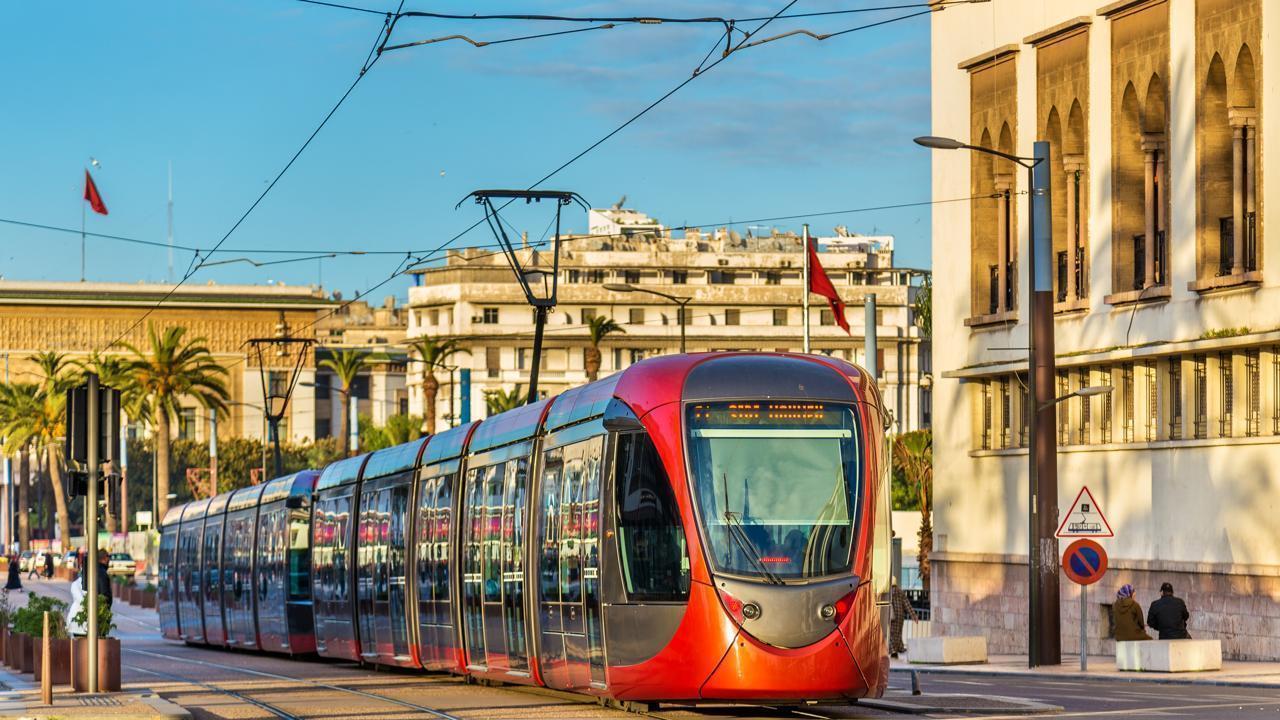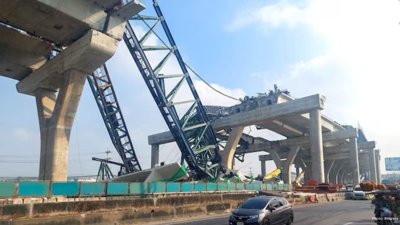
Post by : Amit
Slovakia’s Smart Tram Tender Marks New Era in AI Transit Procurement
In a bold stride toward next-generation urban mobility, Slovakia has officially launched its most ambitious tram procurement initiative to date. The €280 million national tender, issued on July 22, 2025, calls for the acquisition and upgrading of smart tram systems embedded with artificial intelligence (AI) diagnostics, lightweight construction, and regenerative energy platforms.
This rare move not only signifies a major financial and technological commitment by the Slovak Ministry of Transport but also signals a pivotal shift in Central Europe’s approach to public transit modernization—prioritizing data-driven performance, carbon neutrality, and cross-border innovation ecosystems.
Largest Tram Investment Since EU Accession
Slovakia’s tram systems, particularly in its capital Bratislava and second-largest city Košice, have long struggled with legacy infrastructure. Much of the current rolling stock dates back to the 1980s and early 1990s, with patchwork refurbishments insufficient to meet contemporary demands for efficiency, accessibility, and low emissions.
This new tender, which sets aside €280 million in funding, represents the largest tram-centric investment Slovakia has made since joining the European Union in 2004. The funds will be sourced from a mix of national infrastructure bonds and grants tied to the European Commission’s Urban Green Corridors Initiative, part of the broader EU Green Deal.
According to Transport Minister Richard Dráždiak, “This tender is not just about replacing old vehicles. It’s about transforming urban transit into an intelligent, resilient, and sustainable ecosystem. We are laying the digital and green foundations for future generations.”
Tender Scope: Smart Trams and Retrofits
The scope of the tender includes the procurement of 54 new low-floor, AI-enabled trams and the retrofit of 32 existing vehicles. The modernizations will involve integrating advanced sensor networks, onboard edge computing units, predictive maintenance software, and regenerative braking systems based on supercapacitor technology.
These upgrades are designed to reduce lifecycle costs, extend operational uptime, and slash emissions by 20–30% compared to legacy models. Each smart tram will be equipped with a digital twin—a virtual replica of the vehicle that enables continuous monitoring and simulations for predictive diagnostics.
Furthermore, the project specifications highlight interoperability across European signaling systems, supporting ETCS Level 2 Lite, and accommodating modular expansion for future driverless tram trials.
Target Cities: Bratislava and Košice as Innovation Labs
Both Bratislava and Košice will act as demonstration cities for this next-generation tram technology. The two cities differ in geography, transit load, and infrastructure complexity, offering an ideal testbed for AI-driven fleet management.
Bratislava, with its dense historic core and high commuter volume, will receive the bulk of new tram units (34 out of 54), with a focus on dynamic scheduling, energy reuse in hilly sections, and automated track-switching.
Košice, which features more spread-out networks and industrial routes, will benefit more from retrofitted trams and depot-level automation trials. The city is also expected to test a condition-based tram dispatching model, leveraging real-time performance data for on-the-fly routing changes.
AI, Lightweight Materials, and Energy Recovery at the Core
Three pillars define the innovation agenda within the tender: artificial intelligence, eco-materials, and energy optimization.
Bidders and European Competition
As of July 22, key industry players have expressed strong interest. Among them:
Notably, this tender is open only to suppliers based in the EU or associated with pan-European manufacturing footprints, ruling out bids from China or other non-EU origin countries. Proposals are due by November 5, 2025, with technical evaluations and pilot demonstrations scheduled between December and January. Final contract awards are expected in February 2026.
Alignment with EU Green Deal and Digital Mobility Agenda
The tender’s structure clearly reflects alignment with multiple EU initiatives. The European Green Deal, Fit for 55, and the Smart and Sustainable Mobility Strategy all emphasize modal shifts toward rail, energy efficiency, and digital transformation.
In fact, Slovakia’s Ministry of Transport worked closely with the EU Rail Joint Undertaking (EU-Rail) to frame tender requirements that encourage lifecycle accountability, open data standards, and cyber-resilience. Data from the smart trams will feed into the Urban Digital Mobility Dashboard, a pilot analytics framework being developed with the European Commission.
Workforce and Industrial Impact
Beyond the headline technology leap, the tender is expected to generate over 900 direct and indirect jobs across Slovakia, Czechia, and Poland. The contract mandates at least 40% of manufacturing and final assembly to be carried out in Slovakia, a condition likely to benefit firms like ŽOS Trnava and engineering consultancies in Žilina and Prešov.
Moreover, an Innovation Hub is being proposed in Košice in partnership with the Technical University of Košice (TUKE), focusing on embedded systems, transit cybersecurity, and AI simulation environments. This hub would collaborate with tram manufacturers during integration testing and potentially serve as an R&D feeder for broader EU transit initiatives.
Public Response and Stakeholder Engagement
Initial public reaction in Bratislava and Košice has been cautiously optimistic. Urban transport advocacy group Slovak Urban Move praised the tender’s emphasis on accessibility, noting that all new and retrofitted trams will feature low-floor designs, wide gangways, and multilingual infotainment screens.
However, some citizen watchdog groups have raised concerns about data privacy, especially regarding the collection of onboard video analytics and passenger density metrics. The Ministry has clarified that all AI systems will operate on anonymized datasets and comply fully with EU GDPR regulations.
Transport Minister Dráždiak responded: “This project will not only respect but reinforce data sovereignty. Passengers deserve smart transit without surveillance risks.”
Timeline and Project Delivery
If all proceeds as planned, pilot tram models will begin testing in mid-2026, with full deployment across Bratislava and Košice set for Q1 2027. Retrofitting of the existing fleet will run in parallel, coordinated through overnight depot operations to minimize service disruptions.
The Ministry is also exploring potential public-private financing structures for future expansions, with several Austrian and German transit authorities reportedly observing Slovakia’s model as a blueprint for mid-sized European city upgrades.
A Smart Shift for Slovakia—and Europe?
While Slovakia is not typically viewed as a trendsetter in transport technology, this €280 million tender flips that perception. By weaving AI, energy recovery, and eco-design into one holistic procurement model, the country is taking a rare leadership role in Europe’s second-tier transit landscape.
More importantly, it sets a compelling precedent: that smart, resilient, and citizen-focused mobility is possible not just in Western capitals but across the diverse urban fabric of the European Union.
As tenders close and demonstrations begin, the rest of Europe will be watching. Whether it’s Bratislava’s new trams or Košice’s predictive maintenance breakthroughs, Slovakia may have just put itself on the map—not just as a buyer of rail technology, but as a driver of next-generation transit transformation.
Slovakia, AI-Driven Tram










Advances in Aerospace Technology and Commercial Aviation Recovery
Insights into breakthrough aerospace technologies and commercial aviation’s recovery amid 2025 chall

Defense Modernization and Strategic Spending Trends
Explore key trends in global defense modernization and strategic military spending shaping 2025 secu

Tens of Thousands Protest in Serbia on Anniversary of Deadly Roof Collapse
Tens of thousands in Novi Sad mark a year since a deadly station roof collapse that killed 16, prote

Canada PM Carney Apologizes to Trump Over Controversial Reagan Anti-Tariff Ad
Canadian PM Mark Carney apologized to President Trump over an Ontario anti-tariff ad quoting Reagan,

The ad that stirred a hornets nest, and made Canadian PM Carney say sorry to Trump
Canadian PM Mark Carney apologizes to US President Trump after a tariff-related ad causes diplomatic

Bengaluru-Mumbai Superfast Train Approved After 30-Year Wait
Railways approves new superfast train connecting Bengaluru and Mumbai, ending a 30-year demand, easi